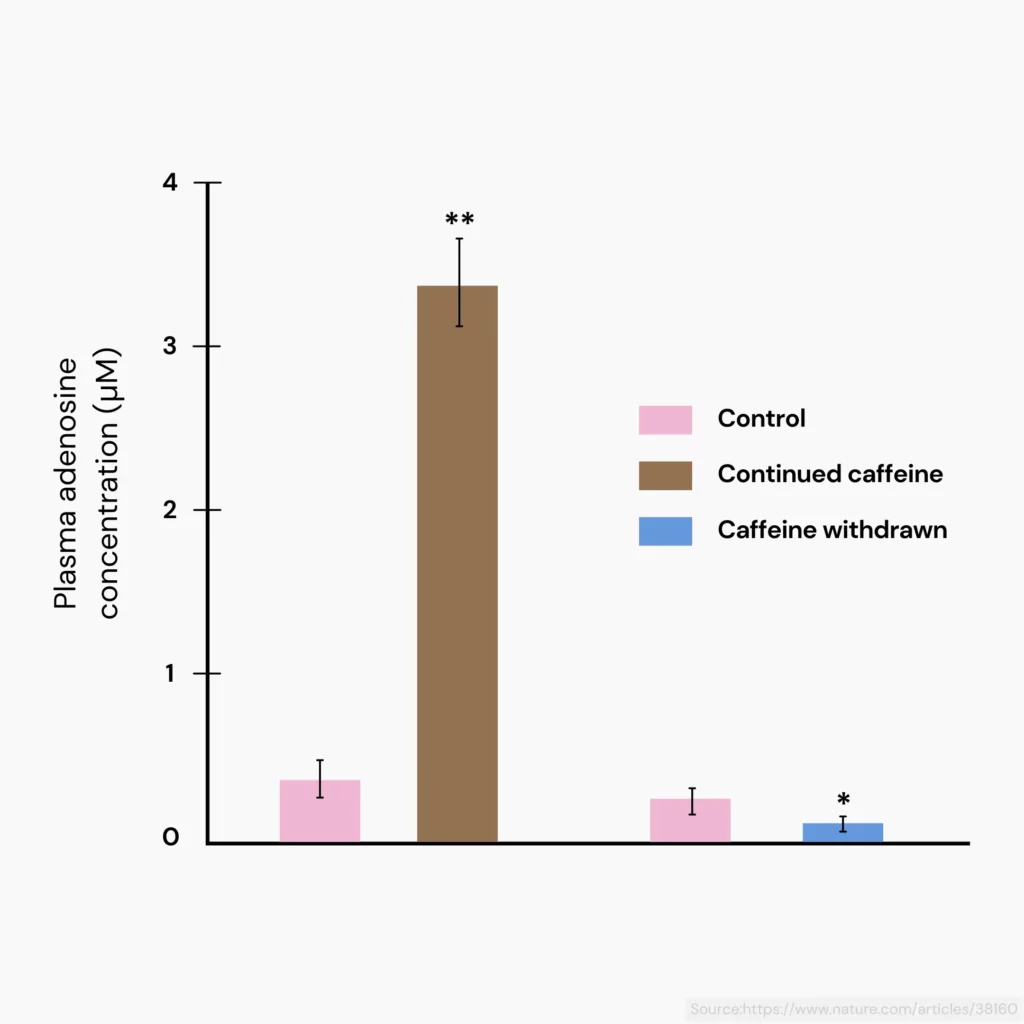Some influencers recommend waiting 90-120 minutes after waking up to have your coffee. Is delaying your morning coffee actually helpful?
While most of us cannot even fully open our eyes without taking a sip of coffee first thing in the morning, a whole wave of online influencers have opposing views.
They recommend abstaining from coffee for 90-120 minutes after waking up to reap the full benefits of caffeine.
They’re calling it the “game-changing” way of drinking coffee since it lets your body awaken more naturally and prevents the afternoon slump.
Coffee Wakes Us Up
The drowsy feeling that finally makes us want to put down our phones and pull up our blankets is all thanks to a hormone called adenosine.
It binds to certain receptors in the brain to induce sleep. Caffeine, structurally similar to adenosine, wards off sleep by binding to the same receptors, thereby blocking adenosine.
Caffeine starts working as quickly as five minutes and typically hits its peak around 45 - 60 minutes after consumption, said Largemon-Roth, a New York-based registered dietitian nutritionist.
But not all of us respond the same way to caffeine.

Caffeine Is Partial To Certain Genes
Approximately 95% of caffeine is metabolized by this one gene called CYP1A2 (pronounced sip-one-A-two).
CYP1A2 exists in many forms, each breaking down caffeine at different rates.
If you have the “fast-metabolizing” form, then you eliminate caffeine quickly and will likely reach out for a second cup shortly after the first.
On the other hand, the “slow metabolizing” variant pushes out caffeine slowly.
Rated 4.7/5 By Users Like You
This report is not a diagnostic tool but a resource to help you better understand your genetic tendencies. Combined with advice from a healthcare professional and other diagnostic methods, it can guide more informed lifestyle and dietary choices. Xcode Life doesn't ship out DNA kits.
Should You Delay Your Cuppa Joe? (The Best Time For Morning Coffee)
Cortisol, the major stress hormone in your body, is not just involved in fight-or-flight but also helps you be alert.
“You naturally release cortisol in the morning to help you become more alert and aware of your surroundings as you wake from your slumber,” DiMarino, a registered dietitian, explains.
Later in the day, when cortisol levels slowly start to decline, having your first cup of coffee can help avoid the energy crash, as explained by Emma Lowe, who shared their “delayed coffee” experience on MBG.
Even after you wake up, adenosine molecules still remain bound to their receptors for a while. So, with less competition for caffeine, the rationale is that it might not give you the energy boost you need.
When people consume caffeine immediately after waking, they often experience a significant energy dip in the early afternoon, known as the "afternoon crash." This crash occurs because the effects of the morning caffeine start to wear off, revealing the accumulated adenosine, says Andrew Huberman, a prominent American neuroscientist and podcaster.
Despite the claims and buzz, there’s little evidence to prove caffeine’s disruptive effects on the “natural waking up process.”
A 2019 study that examined the effects of caffeine on sleep-wake regulation reported that “Neither the time course of melatonin nor cortisol was significantly affected by caffeine or withdrawal.”
Why Delayed Coffee May Not Be For Everyone
According to the CDC, 1 in 3 adults do not get enough sleep.
Considering caffeine’s proven effect on mental alertness and physical performance, it can really help you spring up to alertness first thing in the morning.
Let’s also not forget that for many, coffee isn’t just about the morning kick - its ability to trigger bowel movement has become a dependency.
As Huberman describes, if you work out first thing in the morning, having a cup of coffee right after you wake up can give you the energy boost for working out.
The Timing Of Your Last Cup Matters More
While caffeine’s wakefulness effect is a boon in the daytime, consuming it later in the day can interfere with sleep, leading to restless nights and groggy mornings, which is far from enjoyable.
So, it is important to time your last cup of coffee for the day.
While 6-8 hours before bedtime is the recommended time, slow metabolizers of caffeine may need to give it a good 10-12 hour-gap.
For most, cutting off coffee consumption by 12 PM - 2 PM can help prevent caffeine-induced sleep disturbances.
The Bottom Line: What's The Best Time For Morning Coffee?
There isn’t a universal “best” time to have your morning coffee. Some people may find waiting 90–120 minutes after waking helps sustain energy levels into the afternoon. Others need that caffeine boost immediately to function—especially if they are not getting good nights' sleep, working night shifts, juggling a newborn’s schedule, or training for an early workout. Genetics, lifestyle, and individual tolerance play a significant role in how caffeine affects you. Regardless of when you take that first sip, be mindful of your last cup; cutting off caffeine 6–8 hours (or longer, for slow metabolizers) before bedtime can help ensure a good night’s sleep. Ultimately, the “right” timing is about balancing personal preference, daily demands, and healthy sleep practices.






